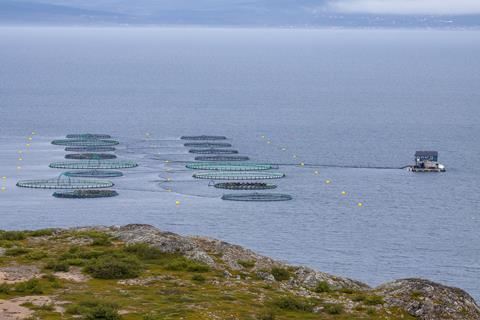I always thought deciphering proteomics data was complicated until I tried my hand at deciphering term sheets and “legalese”. Turns out, transitioning from academia to the startup world is much like decoding a non-model organism’s proteome – theoretically possible, but fraught with a plethora of its own challenges, which you will undoubtedly shed a tear or two over.
I am not unfamiliar with transitioning fields – my undergraduate was spent poring over zoology and microbiology textbooks, and while I loved both subjects, I realized a different challenge was needed. And so, I embarked on a gruelling postgraduate journey in molecular biology and biochemistry – not too foreign, but definitely enough of a deep end to jump into. Little did I know I would veer off the well-established, beaten track of academia, and pave my own version of Tolkien’s “An Unexpected Journey” (I am short enough to pass as a hobbit in any case).
The academic years
I imagine most of us grow up wanting to make a difference in the world, and for me, my research interests reflected that. From assessing the impacts of monoculture on small mammal populations, to characterising the seasonal shifts in feeding regimes of buffalo in the Eastern Cape of South Africa – it was clear I had a passion for animals and conservation. So, farmed abalone were at the epicentre of my PhD thesis – a non-model organism that happens to be the largest export product in the South African aquaculture industry. Using proteomics, the study of all proteins in an organism, my thesis was really a deep, microscope-like dive – an exploration and understanding of the inner workings of these slug-like creatures in response to ocean acidification and warming. I knew there was value in the research I was doing, but perhaps not to the extent that it inadvertently ended up having today. The depth of data and insight gained in my research was entirely attributable to proteomics and the analytical pipeline I developed – where in marine research are we gaining this level of granularity about an organism under any condition? A molecular tool gaining momentum in human medical research, proteomics holds much promise for similar applications and more in fish and shellfish farming.
The leap of faith
I never wanted to start a company – I am risk averse and the failure rates of startups alone are frightening. But following my PhD, we recognized the value of the IP developed at the University of Cape Town (UCT), and how it could benefit a rapidly growing global industry. Aquaculture is predicted to outcompete conventional livestock farming in terms of production and consumption by 2030, and while it is touted to have less of an environmental impact, it still has a long way to go in being truly sustainable.
And so, with my then-PhD supervisor as co-pilot (yes, I am living proof that you can indeed have a good relationship with your PI), we founded MariHealth Solutions in October of 2021 – a spinout company with a mission to harness biotechnology for elevating fish welfare, quality, and prosperity: the perfect triad. We recognized there was a growing need in aquaculture for new solutions that can fill in the blanks of fish health, disease progression, nutrition, and overall well-being. And so, we sought to marry proteomics and aquaculture – equipping the industry with another layer of insight to improve farming operations and nutrition.

Building the bridge
While we had the support of UCT’s tech transfer office, and financial backing from the University Technology Fund, in navigating the early growing pains that come with bridging the gap between the academia and commercial realms, we would become all too familiar with this rollercoaster of ups and downs. From having to rewire my science brain to a business-oriented one and becoming best friends with LinkedIn, to Googling just about everything, it dawned on me that this would be one wild ride, so best buckle up!
Our transition to a startup was filled with a whirlwind of activity – juggling building a business plan, engaging more widely with the local industry, and being knee-deep in red tape, while learning to speak “investor” as a second language. Being a small team meant we wore many hats, while early enrolment into a business accelerator provided me with the fundamentals to springboard my own learning in a wide spectrum of business-related topics. Our first year and a half was spent engaging with abalone farmers, health experts and fish vets, all the while refining our offering, value proposition, and building our brand. Some aspects of business allow for a level of creativity akin to that in science. I found myself enjoying “marketing for dummies” and using brand development and storytelling as my creative outlet, while my co-founder revelled in coding for building a robust analytical pipeline to support our solution. A team of two, inherently finding their niche within their startup – strangely harmonious.
The startup rollercoaster
One thing about a startup is that there is never a dull moment – each day with its own mishmash of wins, challenges, and setbacks. Having spent over a year translating our research into operational utility in the abalone industry, we came to realise that, although there was a need for a solution such as ours, the industry was already constrained with high overheads and small margins. Fortuitously, at the same time, we had the opportunity to explore the Norwegian salmon farming industry through an accelerator program in 2023, which ultimately supported our pivot to the fish farming sector.
Having spent time engaging with all aspects of the supply chain, we were able to identify the pain points and where our solution could be of most benefit. With growing pressure from the public for better fish welfare, and the increasing annual losses in the industry due to disease (i.e. sea lice), the industry is experiencing a shift towards the integration of more biotech solutions to solve challenges around fish health and biology.
Over the last year, a growing consensus at several Norwegian conferences and events I have attended was that we fundamentally don’t know what “normal” or “healthy” salmon are anymore.
And maintaining the status quo will be to the detriment of the industry. In essence, it’s about going back to the basics – we need more insight on fish biology. We have oversimplified their biology in the context of farming. From nutrition and new farming technologies to vaccine development and improved husbandry, proteomics has its part to play in supporting better decision-making by holistically assessing the functional responses of fish. As such, we began engaging more closely with the feed and nutrition sector – how can we enable their development of more nutritious feed for robust fish? And this is where we have been focusing our efforts this year.
From successfully raising three rounds of investment, refining our value proposition and pitching to over 300 people, to slow sales cycles and having to pivot to another customer segment – I never imagined this would be my life after my PhD. Albeit seemingly worlds apart, academia and business have some obvious and interesting overlaps:
1. You’re always hustling for funding and paperwork seems endless. And don’t get me started on the reporting!
2. Work hours are unpredictable – if I didn’t have a window or a watch, I wouldn’t know what time of day it was.
3. Networking is just as awkward at events as it is in conference poster sessions – small talk fuelled either by overpriced hors d’oeuvres, or free cheese and terrible wine.
Lessons learned
An unequivocal truth is life will be filled with twists and turns, and your vision of how your life should be, will be tested. And as much as I never envisioned this journey for myself, I can confidently say it has been one of the most fulfilling things I have had the opportunity to embark on. A PhD’s journey is oftentimes arduous, and you are left feeling lost and uncertain. But the skills I gained have been the anchor in this chapter of my life: from the mental fortitude in tackling setbacks (even with a little tear here and there), the perseverance and patience needed to chip away at challenges, to the analytical acuity with which I assess things, and the sheer eagerness to constantly be learning. And while transitioning from academia to business is challenging and foreign, it’s not impossible.
I have learnt that failures are opportunities for growth, leaning on those around me are my greatest strength, and being humble and teachable unlocks an infinite number of doors. And if it means being able to make a positive impact in the world with some of my research, then I choose to embrace the madness of being an entrepreneur. So, as MariHealth Solutions reaches its 3rd birthday, I can’t help feeling grateful to those in my sphere who have guided, challenged, and encouraged me – I would not be where I am, waking up every day with a sense of purpose. And so, I encourage everyone to find real-world utility, value, and meaning in their own research – the world needs brilliant minds to drive sustainable progress, while facing the multitude of challenges in our midst.
Sarah Carroll is the CEO & Cofounder of MariHealth Solutions. Follow our journey.








No comments yet